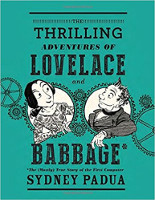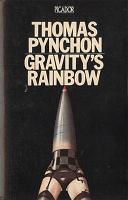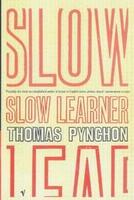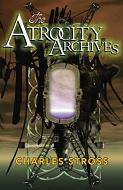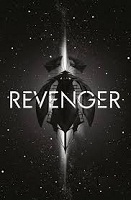 It was not what I expected to find when I picked up this book by Alastair Reynolds - I was looking forward to some large-scale space opera, or maybe some far-future hard SF. But not quasi-Steampunk YA, somehow…
It was not what I expected to find when I picked up this book by Alastair Reynolds - I was looking forward to some large-scale space opera, or maybe some far-future hard SF. But not quasi-Steampunk YA, somehow…
But do come back - Revenger is an enjoyable and engaging read, with a story that stays with you, set in an immersive and fascinating world. Solar system. Universe.
Or, as the blurb has it: "Revenger is a science fiction adventure story set in the rubble of our solar system in the dark, distant future - a tale of space pirates, buried treasure and phantom weapons, of unspeakable hazard and single-minded heroism ... and of vengeance."
But let’s start at the beginning - we see Adrana and Arafura Ness, together with their father, at a function in the Hall of History at the Chamber of Commerce. We witness a confrontation with Dr Morcenx, the creepy family physician, before the two sisters abscond - first to Neural Alley, where they are being told that they have special talents, after which they hire on a Spaceship as Bone Readers. All to get away from Dr Morcenx (who prefers his charges to remain young/underage, and advocates the use of drugs to achieve this…) but also to earn the kind of money to turn the family’s fortunes.
I found this to be a story of contrasts - on the one hand you have the quasi-Victorian setting with the Hall of History, the guilds, the seedy back-alleys with mysterious stalls and shops; and on the other hand you get space flight, sentient robots etc.
And no, I do not think that he really was playing for the the Steampunk effect, but the first part of the book reminded me of nothing as much as of Philip Reeve’s Larklight (although Revenger is not blighted by a romantic undertow which made parts of Larklight such a drag to read).
The story is set, as much as I can tell, in our Solar System, but literally millions of years down the line. Earth has been shattered, and, by someone (not necessarily human) rebuilt into a large number of different worlds of various shapes and sizes. Some, like Mazarile where the story starts, have a ‘swallower’ (read black hole) at their centre to adjust gravity. This Congregation of worlds has seen many Occupations (by humans) before they vanished again, only leaving behind their artefacts and treasures in Baubles - some kind of shielded Asteroids within stasis fields. So we are talking cycles of high-tech civilisations, over the span of millions of years. There are hints of interstellar flight, as the occupations must start somewhere, and returners are a possibility. There are also several kinds of Aliens extant, during the current occupation they run the human banking system, for some reason.
But besides all the classic SF tropes the above provides we somehow also have a different layer, with people having ‘gifts’, special abilities, all aligned with the task of moving through the congregation (using solar sails) on ships, and cracking/looting baubles. To do so you need Scanners, Openers, Assessors, Integrators, Bone Readers, Sympathetics… in itself rather reminiscent of Robert Sheckleys ‘Specialist’, even if nowhere as neat and to the point.
It’s weird, it’s somewhat artificial, and it smacks of intelligent design.
There are other, similar parallel strands of technology here - for example, besides having Sweepers (radar) and Sqwak (radio) we also have Skulls - the remains of some telepathic Alien race, with ‘twinkly stuff’ remaining in them, and which can be wired up to be used for instant communications and intelligence gathering by ‘Bone Readers’ like the Ness sisters:
“We’re speaking of an alien technology none of us properly understand. Just because we use it doesn’t mean we _know_ it.” The civilisation occupying the Congration at the moment has it’s own language, most of which I found quite transparent and recognisable. For example, Space Ship crew call each other Coves, we have talk about the Swirly (Milky Way), or about Lungstuff (guess...).
The plotting I felt to be quite simple - not bad in any way, just rather minimal, straight-forward, and one-dimensional. Which makes it rather predictable, of course. But maybe this is also part of the YA/Coming of age approach of the story? It definitely fits. This clearly is a coming-of age story, too, and as is frequent in those the character development is fast and furious.
Otherwise I could talk about some logical gaps in the events we witness, and my on-going confusion in regards to the function of the Baubles in this universe. Not in regards to the this story, that bit is quite clear, but the concept of storage boxes for a series of high-tech civilisations (including alien ones) to be used for stashing things away, but only now apparently being accessed to pull some of these treasures out.
But there is much scope for further stories to be set in this universe, with or without the main protagonists, and so we might learn more in the future should Reynolds design to pick this thread up again and write more stories here.
Overall this is an enjoyable read with some minor niggles, and not overly complex. There is an underlying darkness, bringing some cruelty and violence into the story, which kept it from being an overly simplistic adventure/caper.
And I found that the story stayed with me for a surprising time after finishing, which suggests that, in summary, it is more complex than it originally looked when I picked up the book!
Thanks to the publisher for the review copy.
Title: Revenger
Author: Alastair Reynolds
Reviewer: Markus
Reviewer URL: http://thierstein.net
Publisher: Gollancz
Publisher URL: http://www.gollancz.co.uk
Publication Date: September 2016
Review Date: 160919
ISBN:9780575090569
Price: UKP 9.99
Pages: 380
Format: ePub
Topic: Space Opera
Topic: YA

